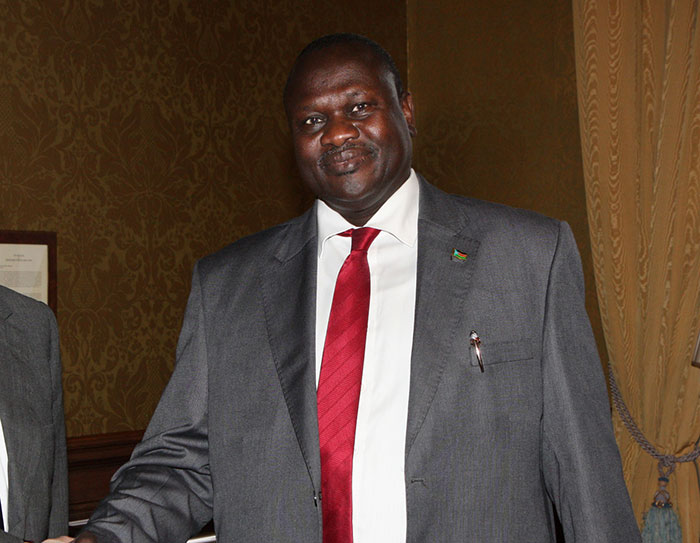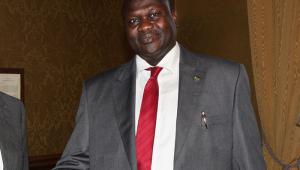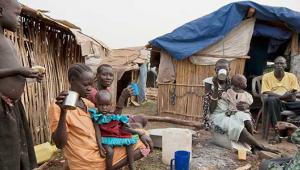web_riek-machar_8345739210_6d0202d6d2_o.jpg

South Sudan's rebel leader Riek Machar dismissed as vice president in a repeat of the event that originally sparked South Sudan's civil war. Credit: UK Foreign and Commonwealth Office
The news came late on Monday night, two weeks after forces loyal to the two men clashed in the capital Juba, sparking fears that civil war was once again about to erupt.
Machar has been replaced by Taban Deng Gai, a former peace negotiator, who was involved in brokering a previous peace deal between the two sides. Deng Gai was sworn in on Tuesday.
After the fighting in Juba, Machar is said to have withdrawn with his troops and demanded the installation of a neutral force between his army and that of Kiir.
Kiir then issued an ultimatum to the first vice president that he must return to save the peace deal or face loosing his job. After the deadline passed, he made a statement officially announcing Machar’s dismissal and Deng Gai’s appointment.
It appears that many of Machar’s party supporters switched allegiance to Gai, nominating him as vice president in the absence of Machar. However, supporters loyal to Machar have described the move as “illegal” and claim he has been ousted as part of a conspiracy.
Responding to the news, the African Union has called for the deployment of a regional force to prevent a return to full-scale war, a plan that has been supported by African leaders and UN chief Ban Ki-moon.
The dismissal of Machar by Kiir is a repeat of the event that originally plunged South Sudan into conflict in 2013. On that occasion, the president accused his deputy of attempting a coup d'état.
Since then, the civil war has been conducted largely along ethnic lines. It has seen tens of thousands killed, millions forced to flee and entrenched severe poverty in the world’s youngest country.
A recent peace deal agreed in 2015 appeared to have brought an end to the violence. But this was shaken as clashes broke out in Juba two weeks ago.
During the conflict, oil production has collapsed and poor economic management has seen inflation skyrocket to almost 300%.












